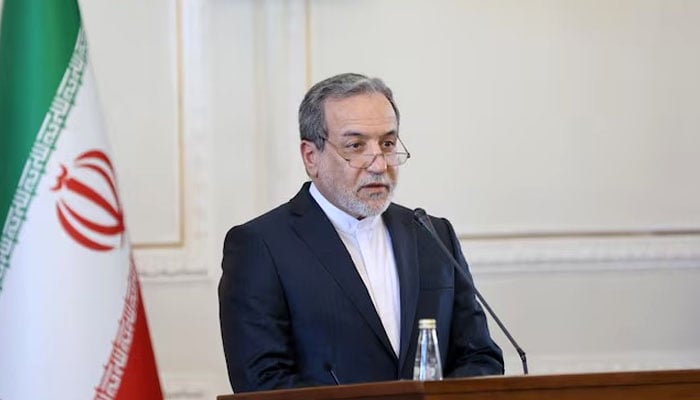
- Talks aim to position participants ahead of US-Iran negotiations.
- Iran FM says E3 lost their role in nuclear file due to wrong policies.
- US seeking new deal to curb its escalating nuclear programme.
Iran will hold talks in Rome on Friday with European parties to their now moribund 2015 nuclear deal, its foreign minister said on Wednesday, as both sides seek to position themselves ahead of a new round of US-Iranian negotiations on Saturday.
Reuters reported on Monday that Tehran had proposed meeting Britain, France and Germany, collectively known as the E3, who stuck to the 2015 deal meant to curb Iran’s nuclear activity, which unravelled in 2018 when US President Donald Trump walked out of it during his first term in the White House.
“In my opinion, the three European countries have lost their role (in the nuclear file) due to the wrong policies they have adopted. Of course, we do not want this and are ready to hold talks with them in Rome,” Iranian Foreign Minister Abbas Araqchi told state media on Wednesday.
There was initial hesitation within the E3 over concern that such talks could create a parallel track and hijack the negotiations pursued by Trump’s second administration that Washington says aim to prevent Iran from developing nuclear weapons.
But three European diplomats told Reuters that the E3 decided it was ultimately in their interest to maintain dialogue with Iran and reaffirm how they envisaged the parameters of a new nuclear deal.
Foreign ministry political directors were meeting US officials in Berlin on Wednesday to be briefed on previous rounds of US-Iranian talks and prepare for the Rome meeting, and will head there on Friday, two diplomats said.
Iran is looking to build on the momentum of nuclear negotiations with the Trump administration that resumed in Oman on Saturday and after its talks with Russia and China last week. US and Iranian negotiators will reconvene in Rome on Saturday.
Iran’s approach to the E3 suggests it is keeping its options open but also wants to assess where the Europeans stand on the possible reimposition of United Nations sanctions against Tehran before October, known in diplomatic circles as the “snapback mechanism”, when a resolution ratifying the 2015 accord expires.
European-Iranian tensions
Relations between the E3 and Iran have worsened over the last year despite sporadic meetings since last September against a backdrop of new sanctions imposed on the Islamic Republic over its ballistic missile programme, its detention of foreign citizens and support for Russia in its war against Ukraine.
Highlighting those tensions, French Foreign Minister Jean-Noel Barrot said on Tuesday that Paris would not think twice if the current negotiations failed about launching the snapback of sanctions, which he said would have “devastating effects”.
He accused Tehran of being on the cusp of covertly developing a nuclear weapon. Iran has long denied this, saying its accelerating uranium enrichment programme is only for civilian energy purposes.
In a letter distributed to the UN Security Council and seen by Reuters, Iran’s permanent representative to the United Nations, Amir Saeid Iravani, said Barrot’s comments were “unfounded and politically irresponsible”.
He said that applying the snapback would be “legally and procedurally flawed, inadmissible, and invalid”.
“(Barrot’s) open threat to reimpose sanctions with ‘devastating effects’ on Iran’s economy constitutes a blatant act of political and economic coercion,” the letter said.
On Tuesday, the US Treasury Department imposed new sanctions on what it described as a network based in Iran and China suspected of procuring ballistic missile propellant ingredients for Iran’s Islamic Revolutionary Guard Corps.
Araqchi said the fresh US sanctions during negotiations sent the “wrong message”.
Trump has said he is confident of clinching a new pact that would block Iran’s path to nuclear bomb capability.
